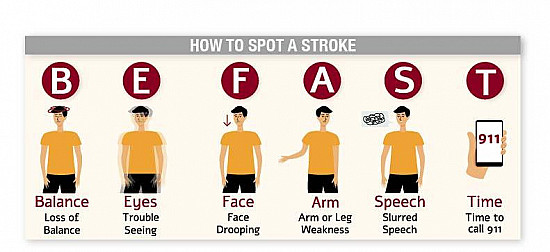Shield your brain from decline
Use the SHIELD acronym to remember the lifestyle habits that will help protect your memory and thinking skills.

We are making encouraging progress in finding medications that prevent or even reverse cognitive decline. Until we get there, however, the most powerful way to protect the brain is to live a healthy lifestyle. The healthy habits to include are summed up with the acronym SHIELD, developed by neuroscientist Rudolph Tanzi, co-director of the McCance Center for Brain Health at Harvard-affiliated Massachusetts General Hospital. Here's what SHIELD means.
Sleep at least seven hours a night
As you sleep, your brain flushes out waste material. Also, microglial cells in the brain clean out a toxic protein called beta-amyloid, which can clump together and form the plaques of Alzheimer's disease. "Microglial cells are like scrubby bubbles," Tanzi explains. "To get enough cleaning, you need seven or eight hours of sleep that includes dream sleep and deep sleep."
What if you can't sleep that long? "Take a nap. If it includes dream sleep and deep sleep, you'll gain an extra cleaning cycle," Tanzi says.
Handle stress
When you're stressed or worrying about the past or future, it activates a set of brain areas where you internalize emotion. Cells there may make more amyloid under stress, and this may be where Alzheimer's plaques begin to accumulate. "Stress also produces the hormone cortisol, which can kill brain cells and trigger brain inflammation, which is an even bigger killer of brain cells," Tanzi says.
He recommends finding ways to gain relief in stressed or anxious moments. "Do something else that will engage your mind — like meditating, taking a walk in nature, gardening, doing a hobby you love, or just watching a documentary," he advises.
Interact with friends
It's okay if you like being alone. But if solitude causes stress and loneliness, it increases the risk for Alzheimer's disease. So it's important to stay socially active. "Research suggests that it helps to see one or two relatives or close friends, besides the family you see every day, at least once per month," Tanzi notes. "They should be people you feel close to and can confide in."
If these people aren't nearby, Tanzi says a phone or video call can be effective interactions. And if you don't have other people in your life, it's time to meet some: talk to your neighbors, join a club, or — if you're tech-savvy — join an online group.
Exercise daily
Aerobic exercise — the kind that gets your heart and lungs pumping, such as brisk walking — promotes the birth of new brain cells in the brain's short-term memory area by increasing the production of a protein called brain-derived neurotrophic factor (BDNF). "BDNF is like Miracle-Gro for new brain cells. Our research has found that you need BDNF to keep new brain cells alive," Tanzi says. Exercise also increases the production of enzymes that break down amyloid.
The goal is at least 150 minutes of aerobic exercise per week, which works out to about 22 minutes per day. It's okay to start with just a few minutes per day and build up gradually.
Learn new things
Learning new information creates new connections (synapses) between brain cells, which keeps thinking and memory sharp. Unfortunately, we lose these connections as we age; the more you lose, the more cognition declines.
Thankfully, we can increase the number of synapses we have at any age. "Learning new information can be as simple as listening to a nonfiction audiobook or trying a new recipe. Or it could be more involved, like taking a class online," Tanzi says. "The more synapses you make now, the more you can afford to lose later. It's like money in the bank. And making new synapses also reinforces the old ones."
Eat a healthy diet
Sugary, salty, and processed foods promote inflammation. Instead, eat a plant-based diet rich in vegetables, fruits, legumes, nuts, and seeds. These foods contain fiber and other healthy nutrients. They promote healthy gut bacteria and help protect the brain against inflammation.
"Reducing inflammation, including brain inflammation, promotes the clearance of brain amyloid while you sleep," Dr. Tanzi says.
Putting it together
Ideally, you'll incorporate all of these healthy lifestyle habits into your daily routine. If that feels like too much, take it slowly. "Focus on one habit per day, such as getting more sleep on Monday, reducing stress on Tuesday, and meeting with friends on Wednesday. Eventually, you'll practice all of the habits every day," Tanzi says. "And it's never too late for them for them to make a difference in your cognition."
Image: © kali9/Getty Images
About the Author

Heidi Godman, Executive Editor, Harvard Health Letter
Disclaimer:
As a service to our readers, Harvard Health Publishing provides access to our library of archived content. Please note the date of last review or update on all articles.
No content on this site, regardless of date, should ever be used as a substitute for direct medical advice from your doctor or other qualified clinician.
















